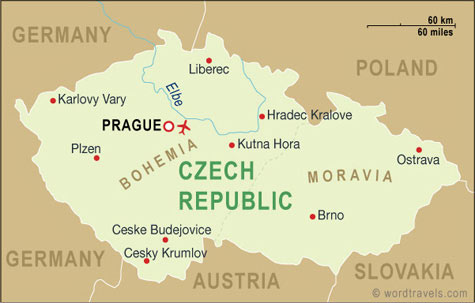Czech court blocks October poll, ballot likely in November
 Prague - The Czech Republic's Constitutional Court Thursday struck down an early general election set for early October, in a move that is likely to delay a snap poll by at least one month.
Prague - The Czech Republic's Constitutional Court Thursday struck down an early general election set for early October, in a move that is likely to delay a snap poll by at least one month.
The top court, based in the second largest Czech city of Brno, sided with a challenge against a single-use law that had enabled the snap poll scheduled for October 9-10.
The court's 15 judges ruled 13-2 that the one-off law was unconstitutional because it was retroactive and arbitrary. They thus cancelled the law and a separate presidential decree setting the election date.
Most party leaders declared respect for the verdict, but other politicians snubbed the ruling. President Vaclav Klaus said in a statement that the verdict "has deepened the political crisis in our country" and called for a redefining of the court's competences.
Lawmakers are now expected to finish amending the constitution, a process they began on Wednesday, so they can force through a snap poll later this autumn nonetheless.
"We were able to find a solution that opens a path to a new, close date," said Mirek Topolanek, the leader of one of the main parties, the centre-right Civic Democrats. "The decision is on the table. Let's look ahead."
The parliament's lower house is to hold a final vote on relevant bills on Friday, Topolanek said.
If all goes as planned, the lower house could be dissolved next week and the snap ballot could be held in early November.
Triggering an early poll is lengthy under the Czech constitution. Under the considered constitutional amendment, the president would have to dissolve the lower house if
120 of its 200 lawmakers back the move.
Another amendment of the election law, would then allow the president to call for a snap poll 50 days after dissolving the chamber.
The change also requires Senate and presidential approval, which would be given as soon as the bills clear the lower house.
Political leaders agreed to hold the October poll, now cancelled by the court, after Topolanek's centre-right cabinet fell in March, well before its term was to expire in June
2010.
The ruling is to cause the country to lose "tens of millions" of koruny in funds already spent on the cancelled October poll, Interior Minister Martin Pecina said.
The election delay is also likely to complicate Czech efforts to combat the effects of the global economic crisis.
The verdict came at a time when the country's budget deficit is expected to soar to 7.4 per cent of gross domestic product (GDP) next year, well above 3 per cent of GDP required for adopting the euro.
A November election is likely to take place too late for a new government to pass a budget and potential unpopular spending cuts by January 1. As a result, the Czech Republic may enter next year with an emergency budget based on 2009 expenditures. dpa